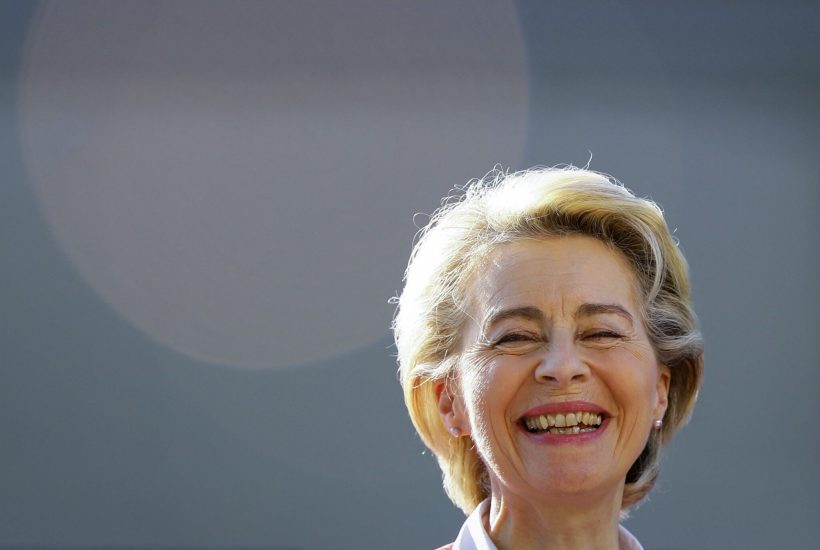The bald guy who leads the Social Democrats. The earnest looking Green lady. Or perhaps the guy in the charcoal-grey suit who leads the oddly named Free Democrats — free from what exactly? — who may end up picking the next chancellor. Lots of commentators will argue for a long time about who is the real winner of the German elections. But in fact there can be no real dispute about who has come out in a far stronger position. The President of the European Commission Ursula von der Leyen.
There are two reasons for this. First, she is now by far the most powerful German politician. Whoever emerges as the new chancellor, he or she (although it will probably be a he, given the relatively disappointing performance of the Greens and their leader Annalena Baerbock) will hardly have a thumping mandate. No one won more than 25 per cent of the vote. Whoever it turns out to be will have spent months haggling for the job, bogged down in compromises and presiding over a three-party coalition made up of people who hate each other. They will never be more than one crisis away from the exit. It will make a painful contrast with the decisive EU leader, able to launch new initiatives whenever she feels like it and with a secure mandate for the next few years. Don’t be surprised if von der Leyen makes a dramatic return as the saviour of the Christian Democrats in four years time.
Next, a power vacuum in Berlin will be filled by a hyper-active, ambitious Commission, encouraged by President Macron in France, and Prime Minister Draghi in Italy, both of whom are enthusiastic federalists. Although no one has bothered to consult any electorates or tried changing any of the treaties, the EU has quietly been increasing its powers at a rate that has not been witnessed since it launched the single currency.
The Commission has already used the pandemic to hijack health policy, which, as we now know, can be incredibly powerful in controlling the whole of society. The Coronavirus Rescue Fund is steadily allowing the Commission to take control of fiscal and industrial policy, monitoring budgets and deciding on how money is spent in each country. And ‘rule of law’ disputes with Hungary and Poland are paving the way for the EU to have oversight of constitutions. In the absence of national politicians to stand up to it, the bureaucracy is steadily increasing its power — as bureaucracies inevitably always will. Paris and Rome are not likely to block any of that and the new German chancellor won’t have the authority to stand in its way even if he wants to.
Whether von der Leyen’s increasingly imperial Commission can actually deliver is another matter entirely. Her record on vaccines suggests not. She took control of the process but made a complete mess of it, ordering the wrong jabs in the wrong quantities. And yet, in truth, no one is likely to be bothered by that. There is no question that the splintering of German politicians has hugely strengthened her — and both she and the Commission are the big winners from the elections.
Got something to add? Join the discussion and comment below.
Get 10 issues for just $10
Subscribe to The Spectator Australia today for the next 10 magazine issues, plus full online access, for just $10.





















Comments
Don't miss out
Join the conversation with other Spectator Australia readers. Subscribe to leave a comment.
SUBSCRIBEAlready a subscriber? Log in